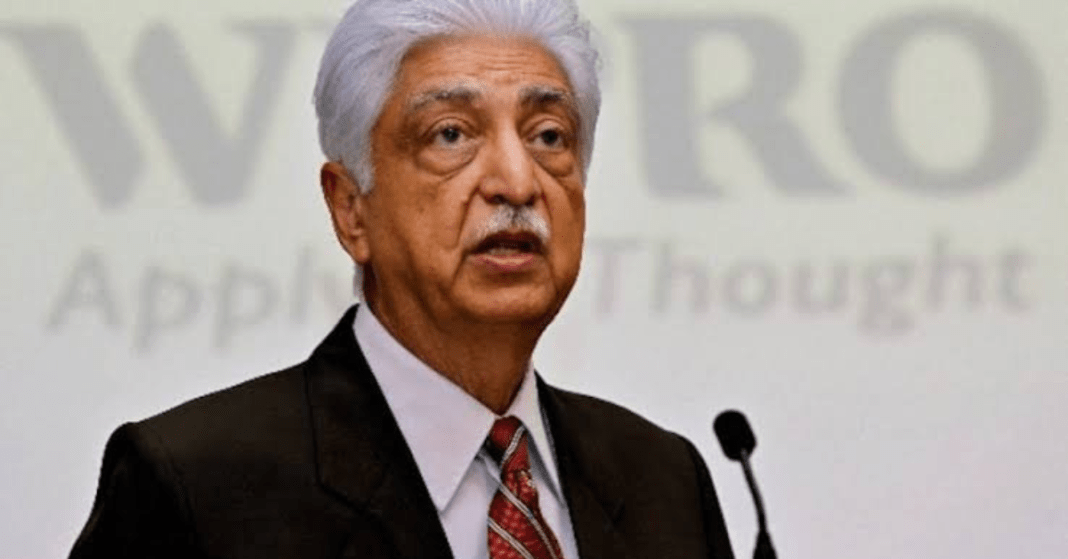In a rapidly evolving business landscape, where profit margins and market shares often dominate discussions, a remarkable shift is emerging among younger entrepreneurs. This new generation, significantly more attuned to social issues, is increasingly prioritizing philanthropy. Azim Premji, the Founder Chairman of Wipro, recently shed light on this trend during the CII Annual Business Summit 2024, held in New Delhi. The event centered on charting a path for India’s future as a developed economy by 2047, and Premji’s observations offered valuable insights into the changing ethos of Indian entrepreneurs.
A Shift Towards Conscious Philanthropy
Azim Premji, a stalwart in the Indian corporate sector and one of the most prominent philanthropists in the world, emphasised that today’s entrepreneurs, particularly those in their 30s and 40s, are more conscious of philanthropy than their predecessors. “I find the younger generation people who have really made it big by the age of 30-40, are getting much more conscious about philanthropy,” Premji remarked. This observation marks a significant shift in the mindset of entrepreneurs who are increasingly aware of their social responsibilities alongside their business achievements.
Unlike previous generations, who may have viewed philanthropy as a secondary concern to be addressed after achieving financial success, today’s young entrepreneurs are integrating social good into their business models from the outset. This integration is not just about donating money but involves building sustainable business practices that contribute to societal welfare. The new breed of entrepreneurs recognises that their success is intertwined with the well-being of the communities in which they operate.
The Legacy Effect: A Double-Edged Sword
Premji, however, pointed out a complex dynamic at play among these younger entrepreneurs. He noted that many of them operate under the significant legacies left by their fathers and grandfathers, who were often substantial philanthropists in their own right. “They find they don’t have to increase the amount of giving because the giving by the fathers was so much,” Premji explained. This inherited wealth and the philanthropic benchmarks set by previous generations can create an “automatic bias,” leading some young entrepreneurs to feel that their contributions are adequate, even if they are not as ambitious as those of their predecessors.
This phenomenon presents a double-edged sword. On one hand, it ensures that philanthropy remains a constant within wealthy families, passed down through generations. On the other hand, it can potentially stifle the growth of new philanthropic initiatives, as younger generations may feel less compelled to innovate or expand their giving, relying instead on the established contributions of their forebears.
Ethical Evolution in Corporate India
Beyond philanthropy, Premji also touched on the broader ethical landscape within corporate India. He expressed a firm belief that the corporate sector today operates with a higher ethical standard than it did 20-40 years ago. “I’m convinced corporates of today are more ethical than the corporates of 20-40 years back,” Premji stated. He attributed this change to two key factors: cleaner governance and a stronger internal sense of ethics within companies.
Premji’s assertion that “governments are cleaner” suggests a significant reduction in corruption and a more transparent regulatory environment, which in turn compels companies to adhere to higher ethical standards. Moreover, he highlighted that contemporary entrepreneurs and business leaders are guided by a “sense of ethics” that influences their decisions, ensuring that their businesses operate with integrity.
Historical Lessons and Future Responsibilities
Drawing parallels between modern corporate practices and historical precedents, Premji referenced the East India Company, whose actions, though legally sanctioned at the time, violated fundamental human values. “The deeds of the East India Company did not violate the legal framework of the day but instead violated basic values and norms of human dignity and human decency,” he noted. This historical context served as a stark reminder of the potential consequences when businesses prioritise profit over ethical considerations.
Premji’s comments underscore the importance of businesses re-evaluating their role in society. He urged contemporary corporates to go beyond conventional corporate social responsibility (CSR) frameworks, which often focus on token charitable activities, and instead engage in meaningful dialogue and actions that address deeper societal needs. According to Premji, businesses must prioritise collective welfare over narrow profit margins, ensuring that their success does not come at the expense of societal well-being.
The Path Forward for India Inc.
As India strives to become a developed economy by 2047, the ethical evolution of its corporate sector and the growing philanthropic consciousness among its entrepreneurs will play a crucial role. The insights shared by Azim Premji at the CII Annual Business Summit 2024 highlight the positive trajectory of Indian business practices and the potential for a more socially responsible corporate culture.
For the next generation of entrepreneurs, the challenge lies in balancing the legacies they inherit with the need to innovate and expand their contributions to society. As they navigate this complex landscape, their decisions will shape not only the future of their businesses but also the broader social and ethical fabric of India Inc.
The shift towards greater ethical awareness and philanthropic engagement is a promising sign that India’s corporate sector is moving in the right direction. However, sustained progress will require continuous reflection and a commitment to going beyond the status quo. As Azim Premji’s observations suggest, the future of Indian entrepreneurship is bright, provided that today’s leaders remain mindful of their responsibilities to society and continue to prioritize the greater good alongside their business ambitions.
In conclusion, the evolving landscape of Indian entrepreneurship, characterized by a growing commitment to philanthropy and ethics, offers a blueprint for sustainable business practices that can drive both economic and social progress. As India approaches its centenary of independence in 2047, the lessons learned from leaders like Azim Premji will be invaluable in shaping a future where business success and societal well-being go hand in hand.





